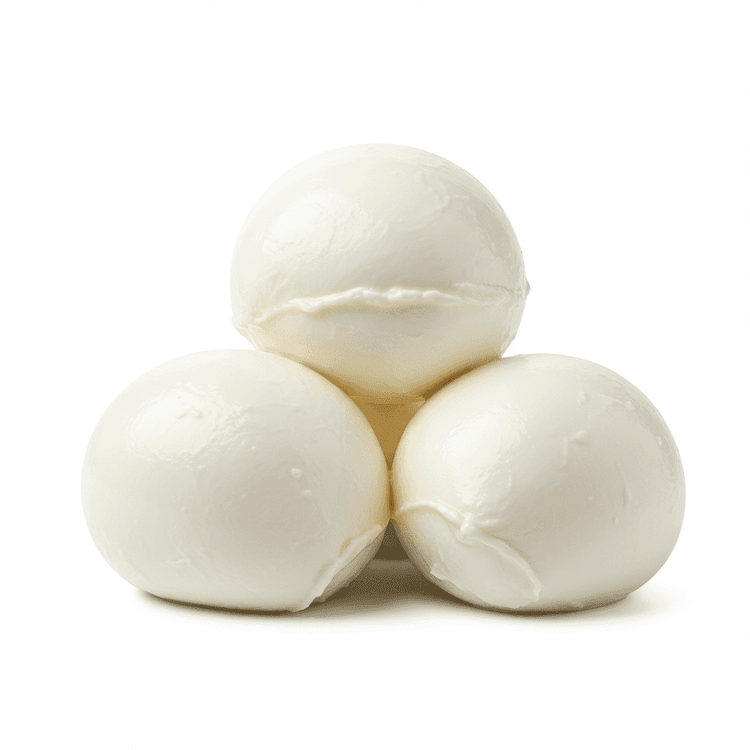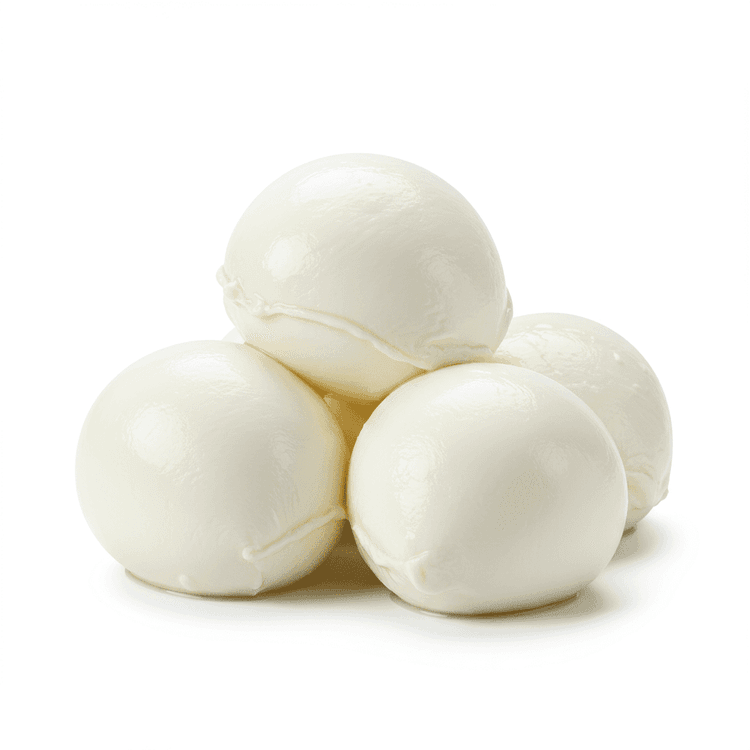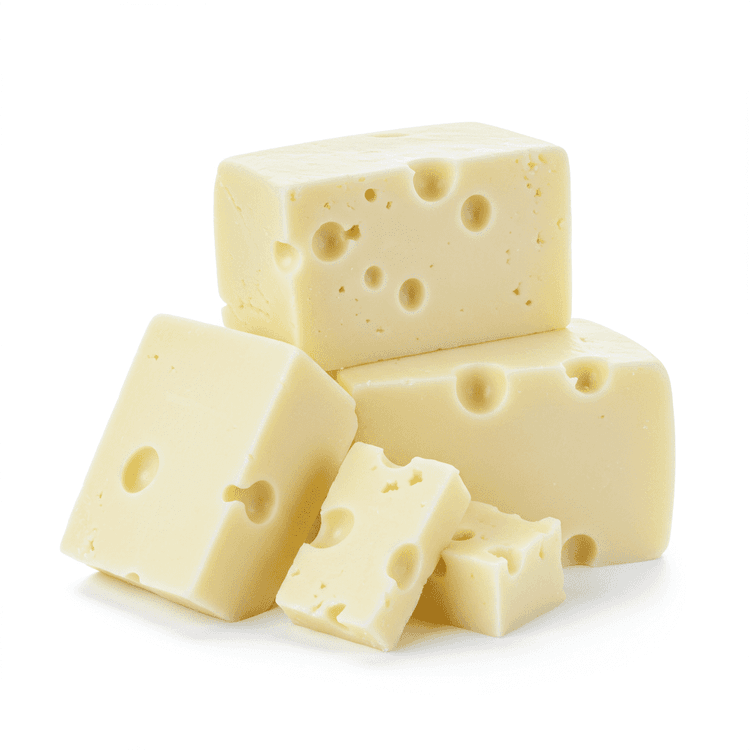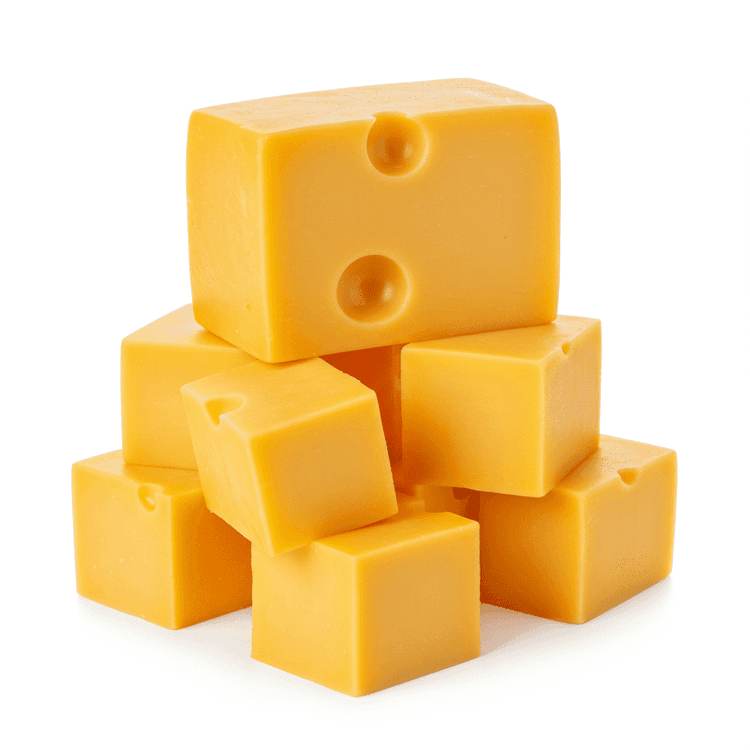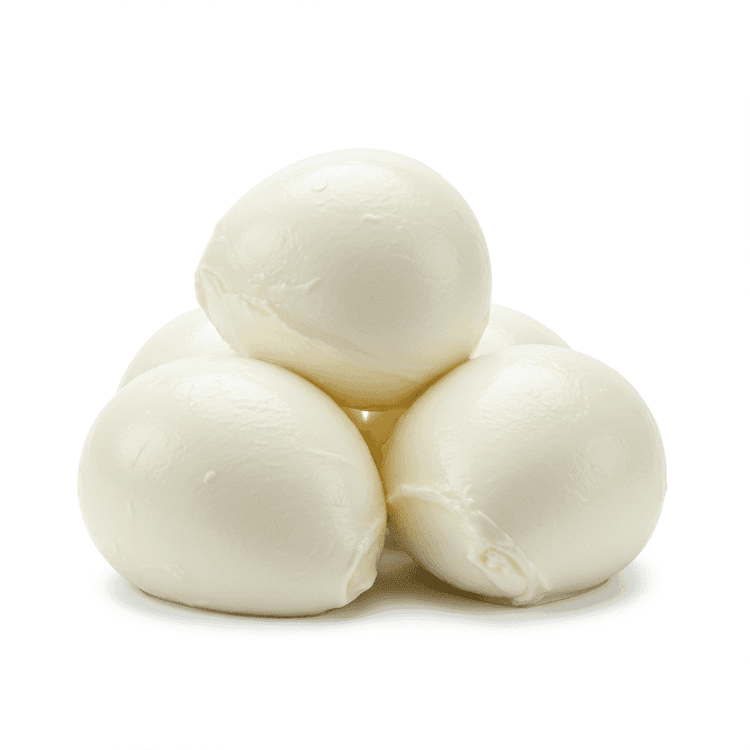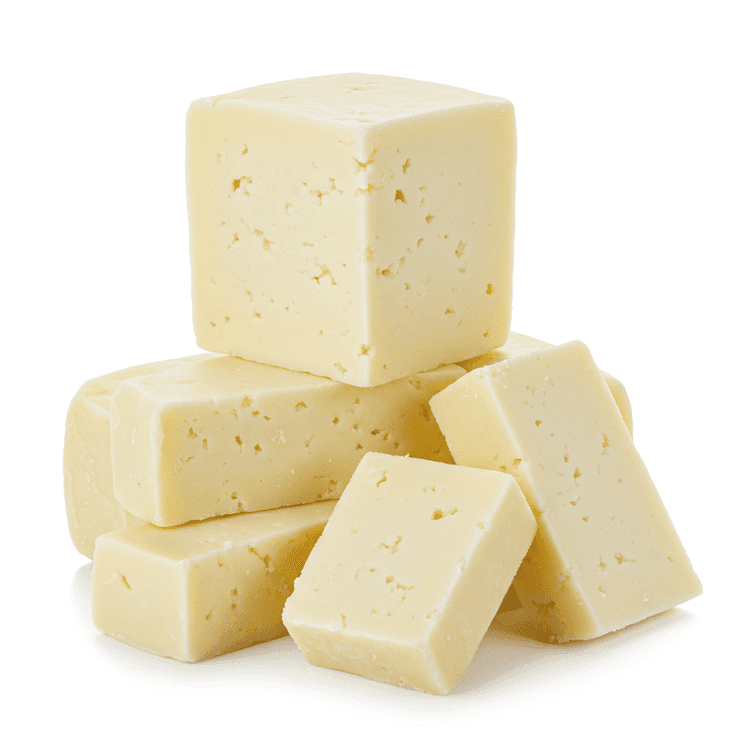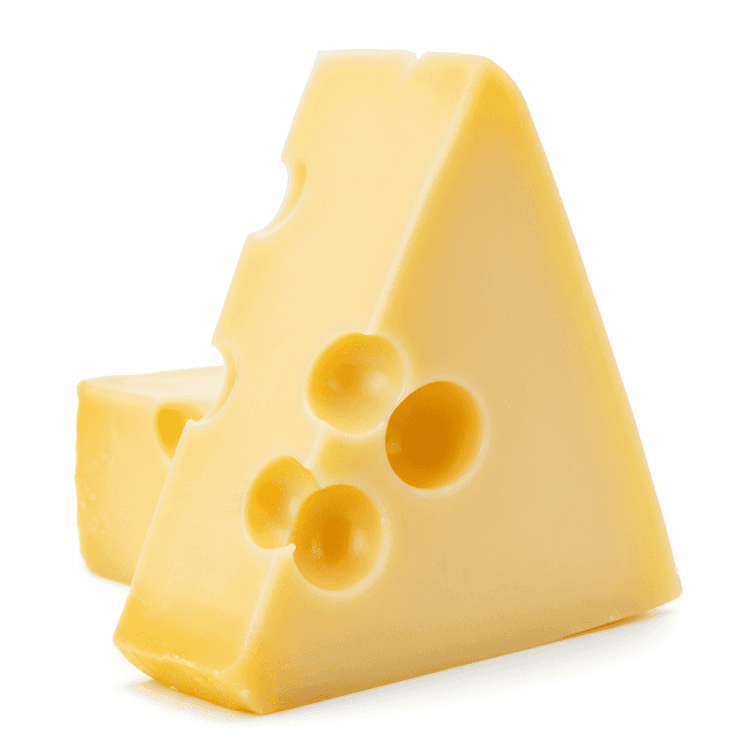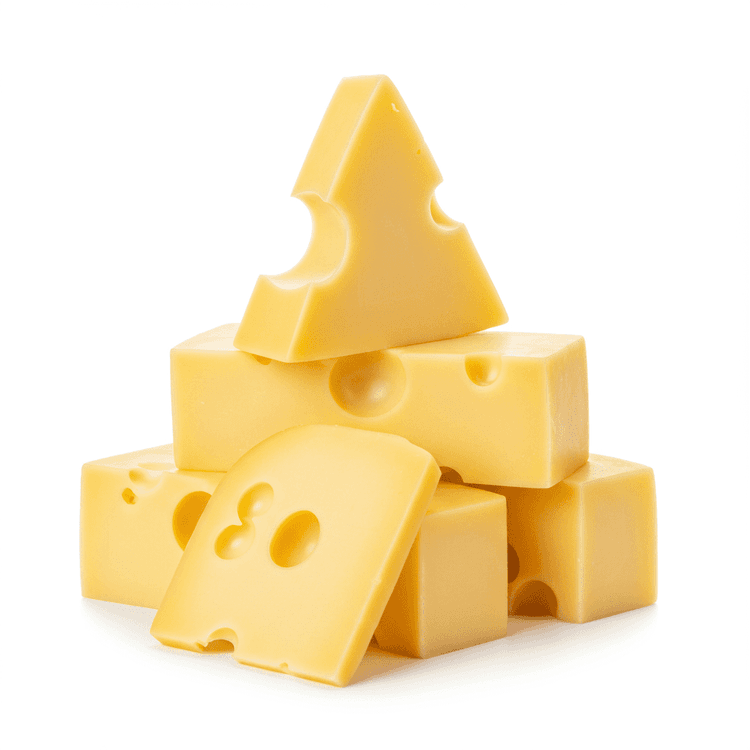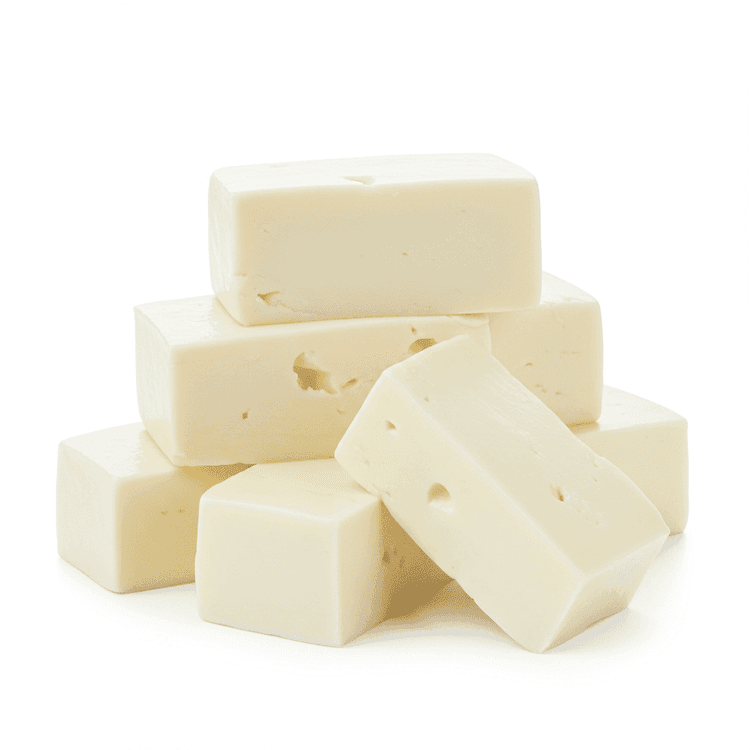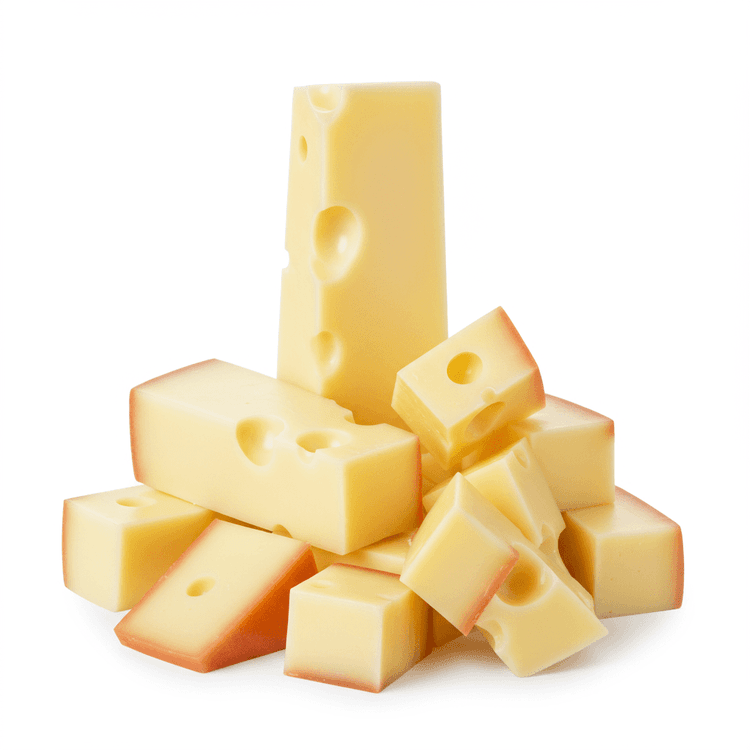
Provolone
Provolone is a semi-hard Italian cheese known for its smooth, slightly elastic texture and mild, buttery flavor when young. As it ages, provolone develops a sharper, more pronounced taste. It ranges in color from pale yellow to light tan, and is often sold in distinctive pear or sausage shapes. Aged provolone, sometimes called provolone piccante, offers a more intense and tangy experience. Whether you're looking for a versatile cheese for melting or a flavorful addition to a cheese board, provolone is an excellent choice for adding a classic Italian touch to your dishes.
Common Uses
- Provolone is excellent for melting in grilled cheese sandwiches, paninis, or other hot sandwiches. Its smooth texture creates a delightfully gooey and satisfying experience.
- Cubed or sliced provolone adds a creamy and flavorful element to antipasto platters. Pair it with cured meats, olives, and roasted vegetables for a delicious appetizer.
- Incorporate provolone into baked dishes like lasagna, baked ziti, or stuffed shells for a rich and cheesy flavor. It complements tomato-based sauces and other Italian ingredients perfectly.
- Use grated provolone as a topping for pizzas, flatbreads, or other baked goods. It melts evenly and adds a mild, yet distinctive, flavor.
- Provolone can be used in chicken Parmesan and other italian-inspired dishes as a main ingredient or added flavor.
- Add sliced provolone to cold cut sandwiches and wraps for a mild Italian cheese flavor.
Nutrition (per serving)
Nutrition (per serving)
Calories
351.0kcal (17.55%)
Protein
25.6g (51.2%)
Carbs
0.8g (0.29%)
Sugars
0.8g (1.6%)
Healthy Fat
8.2g
Unhealthy Fat
18.0g
% Daily Value based on a 2000 calorie diet
Nutrition (per serving)
Calories
351.0kcal (17.55%)
Protein
25.6g (51.2%)
Carbs
0.8g (0.29%)
Sugars
0.8g (1.6%)
Healthy Fat
8.2g
Unhealthy Fat
18.0g
% Daily Value based on a 2000 calorie diet
Health Benefits
- Good source of calcium for strong bones and teeth.
- Contains protein, essential for muscle building and repair.
- Provides vitamin A, important for vision and immune function.
- Offers phosphorus, crucial for energy production and bone health.
- Can be part of a balanced diet to support overall health and well-being.
Substitutes
Chefadora AI is here.
Experience smarter, stress-free cooking.
Storage Tips
Provolone cheese is best stored in the refrigerator to maintain its freshness and prevent spoilage. Wrap it tightly in plastic wrap or beeswax wrap, or place it in an airtight container to prevent it from drying out and absorbing odors from other foods. For longer storage, provolone can be frozen, although the texture may become slightly crumbly after thawing. Use frozen provolone primarily in cooked dishes rather than as a slicing cheese.
Marnirni-apinthi Building, Lot Fourteen,
North Terrace, Adelaide, South Australia, 5000
Australia
